It was day 25 and Xhobiso Pungulwa* (18) slowly pushed himself up in his bed. He asked a nurse for a plastic Ziploc bag, the transparent type used to transport laboratory specimens. He had been in hospital for two “pain-filled” weeks.
Pungulwa’s uncle and brother were to visit him for the first time the next day. He had something to show them – something that required careful storage.
He remembered a nurse trying to comfort him. She whispered: “Try not to think about what has happened to you. Just thank God you are still alive.”
But Pungulwa was “numb”. He no longer knew what to think. “Am I alive?” he recalled asking himself repeatedly, during yet another drug-induced haze. “Am I dreaming?”
The next morning, he handed the plastic bag to his brother and uncle. “When they looked into it and they saw what was inside, they were amazed – and angry. Then I knew, this situation is for real,” said Pungulwa.
The plastic encased a pitch-black, rotten chunk of flesh. “My penis.”
His uncle demanded: “Who did this to you? How is this possible?”
But Pungulwa was not in the mood to provide answers. He silently stared ahead.
The Pondoland initiates who lost their manhood
[multimedia source=”http://bhekisisa.org/multimedia/2013-08-19-the-pondoland-initiates-who-lost-their-manhood”]
The rotting of Xhobiso’s penis
About a month before, a traditional surgeon, or ingcibi, in Pondoland in the former Transkei, circumcised him. Because his parents were dead, his uncle signed the consent forms for the procedure to take place at a legal, state-registered initiation school at Flagstaff.
A 20-year-old traditional male nurse, an ikhankatha, who had only ever attended an initiation school once before – during his own initiation the previous season – nursed Pungulwa’s wound.
“He put the bandage on my penis extremely tight – so tight I could hardly pass urine,” Pungulwa recalled.
“On the fourth day the head of my penis started to turn black and I lost feeling in that area. My knees started to swell and I could hardly walk.”
According to tradition, he was forbidden from telling anyone but the ikhankatha about what was happening to him. He was only permitted to talk to the other boys in his initiation school on day eight, the day of Jisa, when initiates are allowed to leave their tents, or bomas.
The traditional nurse used a blade to make small cuts on the penis. “He said he wanted the ‘dirty blood’ to find a way out, to heal it,” said Pungulwa.
“Black blood” seeped from his penis. The nurse said it should be “squeezed” more to allow even more blood to be expelled … And so he applied a bandage “tighter and tighter”, said Pungulwa.
On day 14, Pungulwa lost consciousness. He was taken to hospital with a “rotten” penis. Of the 12 initiates at the school, five were hospitalised. One died as a result of his injuries.
A small, raw-red bump that resembles a door knob is all that remains of Pungulwa’s penis.
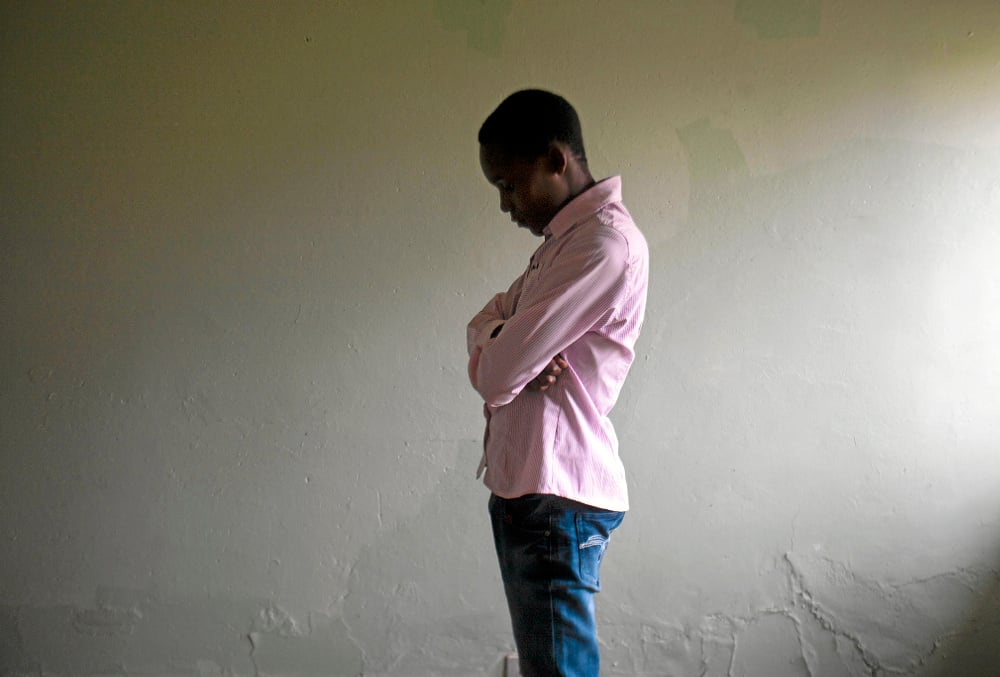 Doctors said urine had “eaten through his flesh” to find a way out of his body – or in medical language, created “fistulas” – before he was brought to hospital. That’s why Pungulwa urinates through two holes.
Doctors said urine had “eaten through his flesh” to find a way out of his body – or in medical language, created “fistulas” – before he was brought to hospital. That’s why Pungulwa urinates through two holes.
“I try to close the one hole with my finger when I go to the bathroom, otherwise things are too difficult,” he said.
When he needs to use the toilet he makes sure the door is locked, or he “goes very far away from people, in the bush”, because he’s terrified of others finding out about his condition and seeing him “sitting like a woman and not standing like a man” when relieving himself.
Pungulwa has ended his relationship with his girlfriend.
“She was never told about what happened to me,” he said softly. “I still like her a lot but I can’t let anyone know what happened to me. No one must know.”
He added: “Anyway, she won’t want me anymore. Not now.”
Horrified by what had befallen Pungulwa, his family desperately “tried to make things right”, he told the Mail & Guardian.
“They bought muti from a traditional healer. He said the muti would make my penis grow back.”
But the traditional medicine did not work.
Then Pungulwa’s family made contact with “a Nigerian guy” in Flagstaff who claimed he had the solution.
“He told them he can make my penis grow back but he needs a cow or R9 000 cash,” said Pungulwa.
Undeterred by their previous experience with the traditional healer, his family is trying to raise the money.
“None of us has a job, so it’s really hard,” said Pungulwa.
His eyes hardened and he stated harshly: “If that route through the Nigerian fails, then we will all pray very hard. We are ZCC [Zion Christian Church] followers and the ZCC will give me holy water to drink. We will get my penis back, I know it.”
“Penises don’t grow back”
Dingeman Rijken is a medical doctor at Holy Cross Hospital, near Flagstaff in the Eastern Cape.
“Many of my patients think their penises are going to grow back, despite me explaining to them that they won’t,” he said.
“I explain that if you chop off the tip of your finger it won’t grow back and it’s the same with a penis. But when they return home and talk to their families and the traditional nurses they get a different message – one that is often easier for them to believe.”
This past June-July initiation season, Rijken treated almost 130 “penis-related” injuries at Holy Cross. Eight of his patients lost either a part of or their entire penis.
“It’s natural to want to believe a ‘positive prognosis’. It’s the same when you tell a patient he or she has got a terminal illness and there is a very small chance of being cured. The patient will mostly believe he’s going to get cured.
“If you have to choose between the opinion of a doctor who says your penis won’t grow back and those of your peers saying ‘don’t worry, it will return’, I can understand why you would choose the more positive one.”
Acceptance of the situation, Rijken said, usually only arrives later, when penises fail to grow back after a significant period of time.
He added: “We rarely remove a ‘dead’ penis surgically. It’s only when an initiate fully understands that his penis is partially dead that he can accept active separation of the organ.
“It is very difficult to get them to understand this, which is why it is easier and safer to wait for auto-amputation [allowing the penis to fall off naturally], which can take anything between one and six weeks.”

Inexperience can be fatal
According to government statistics, 26 of the Eastern Cape’s 39 initiation-related deaths this year happened in Pondoland, a mountainous 50km-wide coastal strip that stretches between the Mthatha and Mtamvuna rivers in the former Transkei. It is the traditional home of the Pondo people, the Amapondo.
Pondo king Faku abolished the ritual in the 1820s during the war with the Zulus, because he believed it weakened his young warriors. But initiation schools began re-emerging when the apartheid overlords formed the Transkei Bantustan in 1976 and homeland authorities began encouraging circumcision to boost masculinity, according to academic research.
Doctors and traditional healers in the region said circumcision was widespread again in the 1990s and is now practised in Pondoland on an “unprecedented” scale – even though current Pondo king Zanozuko Sigcau has never officially reinstated the practice.
“It’s a dilemma,” Rijken said. “What used to be a beautiful and valuable cultural tradition is now accompanied by many unnecessary complications and deaths. That’s because the tradition has been hijacked by the youth – it’s become a ritual for the youth by the youth.
“The bomas are very rarely run or supervised by older, more experienced and responsible men, because few older people have actually undergone the ritual themselves.”
In other parts of the Eastern Cape, said Rijken, there are men who have been operating initiation bomas for years and who have trained other men in “responsible, effective” circumcision methods.
“But in Pondoland I’ve come across many amakhankatha of 20 years of age, who have responsibility for a school of 25 initiates. But they don’t know what they are doing. They do not fully understand the magnitude of their responsibility, let alone the consequences of their actions.”
An analysis by Rijken and Patrick Dakwa, a former traditional nurse and now an amakhankatha trainer in Pondoland, shows that 175 initiates were admitted to public hospitals in the Alfred Nzo and Oliver Tambo health districts in the area this past season; 25 lost a part of or all of their penises.
Ayanda loses his penis
Ayanda Bityi* (24) was rescued from a legally registered initiation school in Bukazi near Lusikisiki 11 days after an ingcibi (traditional surgeon) removed his foreskin with a spear. There were 15 initiates, or abakwetha, and the same unsterilised spear was used on all of them. Eight of the initiates were hospitalised; four lost the heads of their penises and one, Bityi, lost his entire organ.
He recalled: “When I woke up in hospital one morning I felt something beneath my left thigh. When I checked what it was, it was the head and shaft of my penis that had separated from my body the previous night.”
Three days after Bityi was circumcised, the 21-year-old traditional nurse in charge of the school accused him of “being weak and walking too slowly.” As “punishment”, the ikhankatha applied a bandage “extremely tightly” around the base of Bityi’s penis.
“After this I tried to escape but some men captured me along the road and they forced me back to the boma. There I was assaulted by the traditional nurse, who was clearly drunk. I lost consciousness. When I woke up, I was in hospital,” said Bityi.
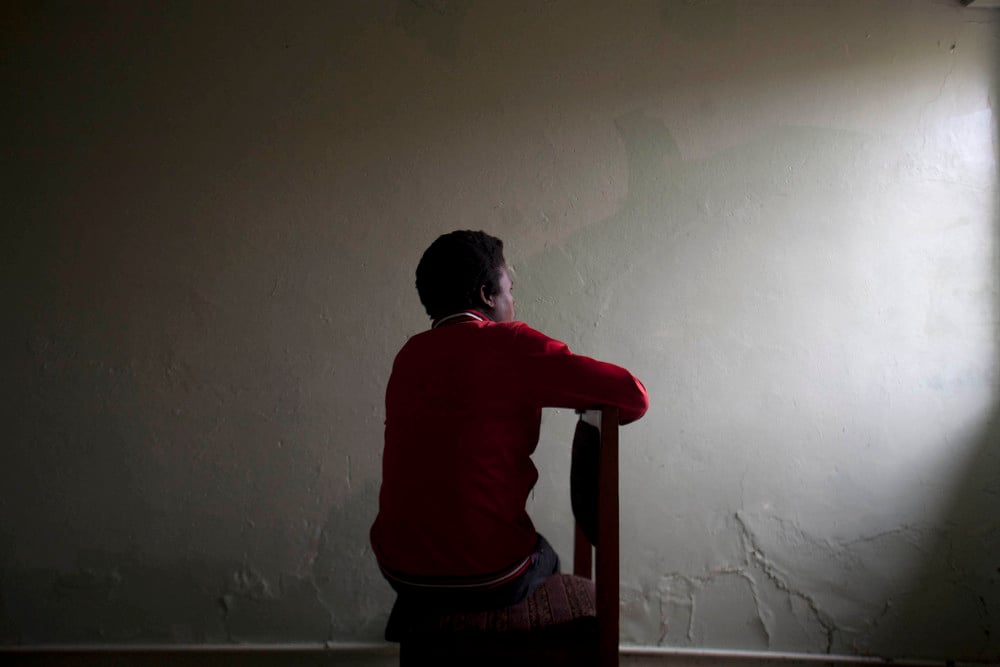 Dakwa said initiates who experience penile infections are often held responsible for their conditions, “because they’re seen as weak and as cowards; the infections are regarded as a sign of their weakness and not as anything the nurse might have done wrong. Many times they are punished by making a penile bandage extra tight.”
Dakwa said initiates who experience penile infections are often held responsible for their conditions, “because they’re seen as weak and as cowards; the infections are regarded as a sign of their weakness and not as anything the nurse might have done wrong. Many times they are punished by making a penile bandage extra tight.”
Rijken and Dakwa conducted in-depth interviews with 21 of the 25 “amputees” they visited; nine of them reported tightening of their bandages as punishment for “weakness”.
Rijken explained: “If you make a penile bandage too tight blood vessels are cut off and the penile tissue is not supplied with oxygen. Tissue deprived of oxygen is more vulnerable to infections but can also die if the bandage is tight enough and kept on for long enough.
“Combined with practices such as bandages that are often used on different initiates, and leaves that are rubbed against the sole of a foot before application to the wound, bacteria are introduced into the wound and spread from one initiate to the other.”
According to Dakwa’s research, as circumcision re-emerged in Pondoland from the 1980s, “much more attention” was paid to the actual circumcision procedure itself and the need for “physical hardships” to accompany it than on traditional Xhosa teachings about manhood that didn’t place “nearly so much” emphasis on actual physical pain.
“These days, to ‘qualify’ to be a man you must demonstrate that you can endure physical pain. Endurance is tested through suffering – the cutting of the foreskin without anaesthesia and, in some cases, things get out of hand and there’s physical abuse. Initiates are not supposed to complain about pain, even though this can be a sign of a medical complication.”
Initiates often dehydrated
In contrast to what happened in the past, amakhankatha now commonly radically reduce initiates’ intake of fluids – partly to test their strength, said Dakwa, “but also to make initiates pass as little urine as possible because it’s believed the more urine they pass, the longer it will take for their wounds to heal.”
He added: “It’s also wrongly believed that drinking less water will prevent a fluid called ulambo (isiXhosa for ‘a wound like a river’) from draining from the wound.”
According to Rijken, this fluid, sometimes “reddish” in colour, “separates from the blood to bring necessary nutrients, like proteins, to aid wound healing. Its presence is part of the normal healing process and has nothing to do with drinking too much water.”
Half a cup of water a day … that’s all Bityi and his fellows were allowed at the initiation school.
“I was always thirsty, always,” he says. “My body craved fluid, while my infections got worse every day. For eight days we all had to sit in a small suthu [tent] made out of plastic with a fire constantly burning. It was very, very hot.”
Plastic retains heat and prevents circulation of air, so initiates sweat excessively in their tents and, in combination with the lack of fluids, become severely dehydrated.
“When your body does not have enough fluids it becomes weaker. You can easily develop infections and the outcome will be worse. Dehydration can also lead to renal failure or death, as it can make your body go into shock,” said Rijken.
All the “amputees” in Rijken and Dakwa’s study were dehydrated when admitted to hospital – three- quarters of them came from legally registered schools.
Seventeen reported that they were given only half a cup of water a day; three were given no water at all and would escape to a nearby stream to alleviate their thirst when traditional nurses “disappeared”.
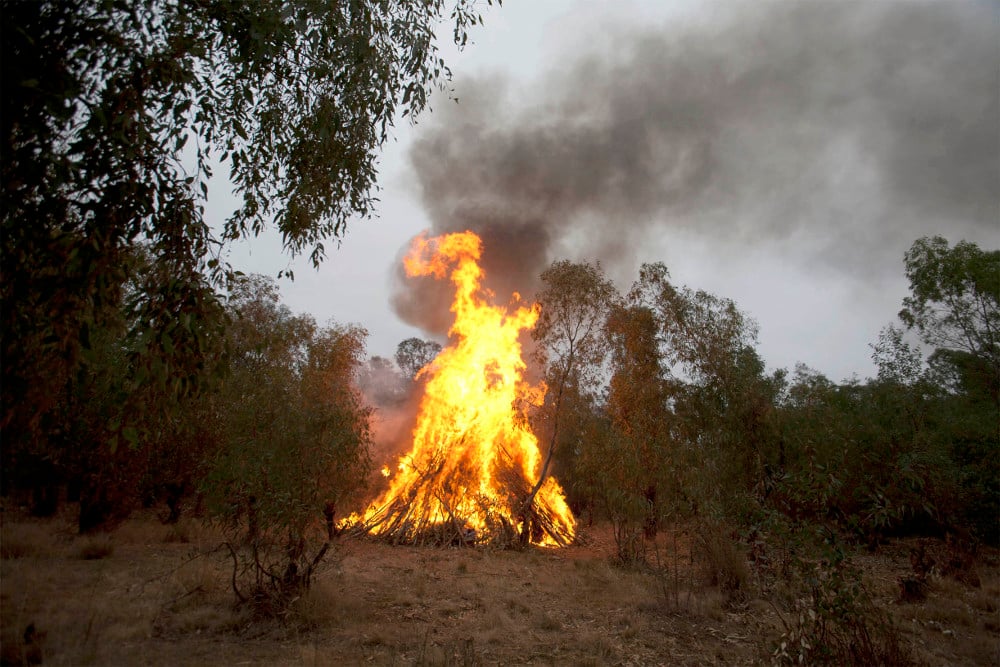 When Dakwa and a “rescue team” descended on the initiation school where Bityi and the others were, the traditional nurse fled and hasn’t been seen in the area since.
When Dakwa and a “rescue team” descended on the initiation school where Bityi and the others were, the traditional nurse fled and hasn’t been seen in the area since.
Dakwa asked: “How does a 21-year-old teach initiates of his own age, and some even older than him, how to be a respectful, courageous man when he has almost no experience of living as a man himself? And when he runs away from his problems? This is what is happening all over Pondoland these days.”
People begin to “whisper”
When Ayanda Bityi told his three closest friends that he had lost his penis, they sympathised and said they were grateful he was alive. But he said about a week later they “changed their minds”.
“They told me they wanted to take me out for some fun. I went with them to a room at a house nearby. I saw some girls and women there.
“These friends of mine had told all of them that I now had no penis. They laughed and told me: ‘Go and satisfy yourself with these women; we are going now to our girlfriends.’ Then they locked me in that house for hours, with all these females …”
Bityi attended the initiation school with his younger brother, who was circumcised without a serious injury.
“I went into that tent to become a man. But I came out as nothing,” he said. “Today, I don’t know what I am.”
People in Bukazi began to “whisper” behind Bityi’s back until he said he could no longer take it.
“My community rejected me so I had to leave. Even my own brother refuses to talk to me.”
Bityi abandoned his life as a cattle herder in Bukazi and “fled” to Bizana, about an hour and a half’s drive away.
“I am squatting at a house here. No one here knows what’s happened to me. I am trying to have a better life now,” he said.
But Bityi acknowledged that his “better life” is increasingly threatened. He has started a relationship with a local young woman. Now she wants sex, he said.
“I’ve run out of excuses. I’ve told her I was in a car accident and was injured badly and that I need to recover. But she’s now starting to say I don’t love her,” Bityi explained.
He said he could not risk telling his girlfriend the truth as she’ll “immediately” leave him and tell the entire village that “I am not a man”.
Bityi continued: “I want a wife but how will that ever be possible? I mean, we won’t be able to have any children and I won’t be able to satisfy her.”
Bityi, a slender man, rubbed his leg nervously and admitted: “My life has become a race of running away from the truth. I keep blaming myself for what happened and because I am now different from other men.”
He stared blankly into the distance and mumbled: “I have no purpose.”
Sicelo’s partial penis
‘I struggle to ejaculate,” said Sicelo Thafeni* (20), his eyes barely emerging from a back-to-front blue cap. “Before this happened to me it was easy and quick.”
He lost the head of his penis at an initiation school in the Flagstaff area last year. Again, it was a young, untrained traditional nurse caring for his wound and “punishing” his “weakness” with a tight bandage.
Rijken explained: “The head or tip is the most sensitive part of the penis – it’s where the nerve endings are. So if you lose the head, or in medical language, the glans, there will be less feeling in that part of the penis and that will impair sexual function. It could therefore take long to reach an orgasm and ejaculate.”
Thafeni said his friends laugh at his short penis. But, he added: “I’ve found a way to deal with my girlfriend. A while back I asked her: ‘How do you know if a man’s been circumcised?’ She answered, ‘Their penises look like yours …’ She believes circumcised penises are shorter and I’ve told her it’s true.”
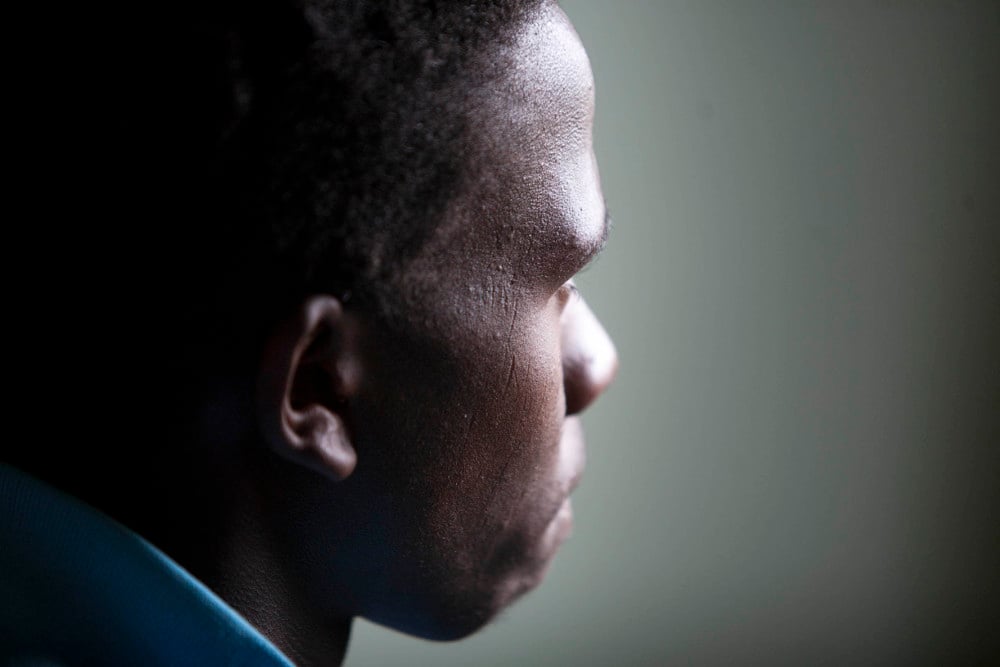 Studies conducted on men with medically amputated penises due to penile cancer show that an erect penis of a minimum length of 3cm is needed for penetration during sex.
Studies conducted on men with medically amputated penises due to penile cancer show that an erect penis of a minimum length of 3cm is needed for penetration during sex.
“Boys who have lost only the head of their penis can usually still have sex, but it depends on how much of the penile shaft is left and whether it’s deformed,” said Rijken.
Penile reconstruction is possible through plastic surgery, but it’s not available in the Eastern Cape public health sector – although two new plastic surgeons at Nelson Mandela Academic Hospital in Mthatha are currently being trained to do the procedure, according to the head of the hospital’s urology department, Nelson Bustamante.
“But the procedure does not restore sexual function; it only allows a man to have something that looks like a penis and to restore his urinal function [so that he’s able to stand while urinating],” he said.
Rijken has been in touch with Albert Luthuli Hospital in Durban, where a plastic surgeon has agreed to assist, but only men who have lost their entire penis would be eligible for reconstruction.
“It’s extremely complicated to explain to such patients here in rural areas that they would not be able to have sex with their reconstructed penises, that it’s a cosmetic procedure and repairs urinal function only,” Rijken said.
“Patients would need extensive counselling beforehand – counselling that we currently can’t offer.”
Holy Cross Hospital provides free medical circumcisions, but Rijken said: “The uptake has been extremely low; I’ve only done about 30 this season.”
This is compared with Pondoland’s 237 initiation schools that in June and July circumcised 2 116 initiates, according to provincial health department figures.
Dakwa’s and Rijken’s research shows there is considerable resistance to “Western methods” at initiation schools.
“Cultural prejudice may be so great that uncircumcised or ‘improperly’ circumcised men are attacked and beaten. To be medically circumcised is not seen as ‘proper’ circumcision, as it’s a Western method and there’s a lot less pain involved due to the use of local anaesthetics,” said Dakwa.
Bityi, for example, chose the “traditional way” because of the stigma attached to the “medical way”.
“People who were medically circumcised are not regarded as men – they’re sissies,” he said.
Zola Mbengashe* (20), who was traditionally circumcised in Ngqndulo Village near Flagstaff in June and lost the head of his penis, said he’ll return to the initiation school “as soon as possible” – despite the fact that he’s now “terrified” of it.
“I don’t want to go back but, if I don’t, people will discriminate against me. They won’t call me a man, but take me as a coward. There’s just too much community pressure,” he said.
Circumcision and HIV protection
During medical circumcision the entire foreskin of the penis is removed. In traditional circumcision, some of the foreskin is often left behind. A 2012 study conducted by the Desmond Tutu HIV Centre at the University of Cape Town showed that 27% of Xhosa men who had been traditionally circumcised had some or all of their foreskins remaining.
Local and international research has revealed that men who have had their entire foreskin removed are up to 60% less likely to contract HIV.
“If traditional nurses are trained to remove the entire foreskin correctly, the procedure should have the same HIV prevention benefits as surgical circumcision,” Rijken said.
Doctors stitch circumcision wounds but traditional nurses usually don’t – they use bandages.
“A good traditional nurse will bandage a penis in such a way that they will pull the penile skin up so that they reduce the wound effect [make the wound smaller]. If you’ve got a bad traditional surgeon, a good traditional nurse will be able to fix his mistakes. Unfortunately few traditional nurses in Pondoland have been properly trained,” said Rijken.

He and Dakwa have started to train traditional circumcisers in Pondoland at their own expense.
“We include information on hygiene such as washing hands before circumcisions, using gloves and one blade or spear per initiate in order to prevent the transmission of infections such as HIV or hepatitis. We teach wound care and how to spot the early signs of infection.
“However, the most important thing is that they know they can call us when things go wrong,” said Dakwa.
They plan to introduce “super” bomas in December. At these special tents, they’ll integrate medical circumcision with initiation.
“If we get some schools to buy into this, it will be a start to break down cultural prejudice that prevents people from accessing medical help when needed,” said Rijken.
Hiding the truth to be a man
The day after his relatives saw his rotten penis, Pungulwa walked to one of the hospital’s dustbins and placed the bag containing it carefully inside.
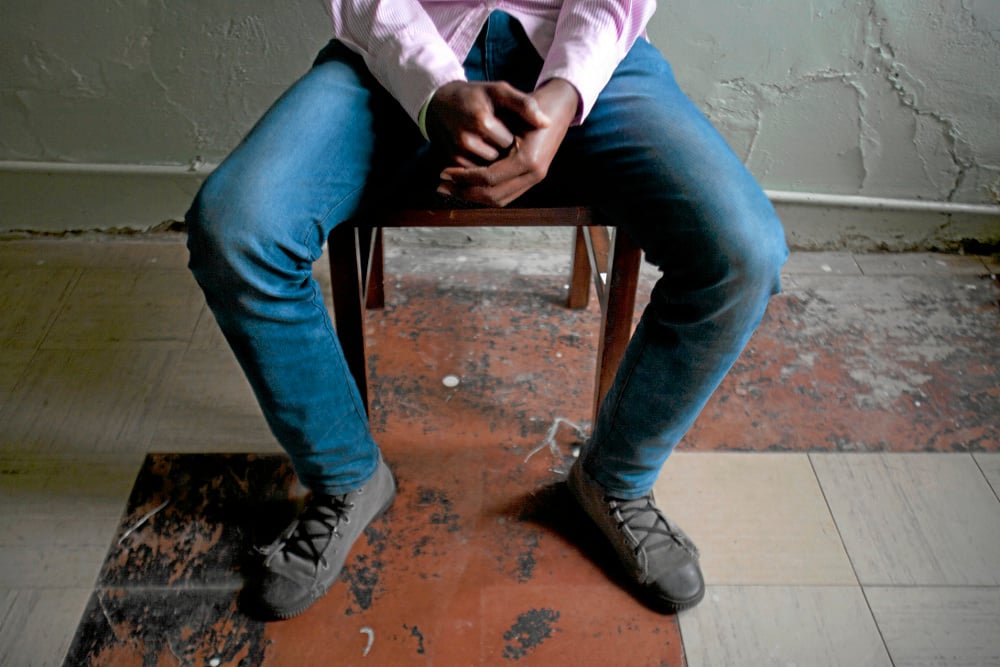
“In my culture I am a man now because after I left the hospital I went back to initiation school to attend the graduation ceremony,” he said.
Only his uncle and his brother know the truth. “Everyone else just knows that I nearly died because of circumcision,” he said.
But Pungulwa said this without any triumph, and added ruefully that his brother is planning to be circumcised in December.
“I’ve tried to stop him already; I’m telling him it’s not really safe. But he says to me: ‘Brother, I want to be like you.’ He doesn’t know the truth of how I look; that I don’t have a penis. He tells me: ‘I want to be a man, like you.'”
* Not their real names. All photographs by Oupa Nkosi
[This story was originally published on 16 August 2013].
